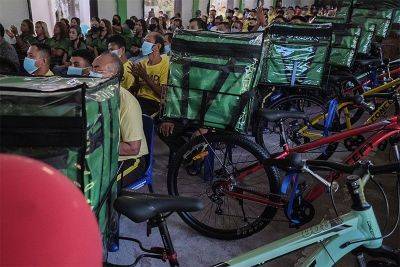Paris 2024 hopes to be model for lower-carbon Olympics
PARIS – This year's Paris Olympics will use renewable energy, serve lots of vegetarian meals and heavily restrict plastic bottles, but can an event involving so much construction and international travel ever be environmentally sustainable?
After an extravagant FIFA football World Cup in Qatar in 2022 that featured air-conditioned stadiums, the Paris Games are hoping to present a more sober model for global sports events.
"I hope Paris 2024's efforts to reduce its impacts can demonstrate that it is possible to do things differently," Georgina Grenon, director of environmental excellence for the organizing committee, told AFP in a recent interview.
One of the main differences will be in the overall carbon emissions, with organizers aiming for half of the amount generated by the 2012 Olympics in London and the 2016 edition in Rio de Janeiro.
Paris 2024 initially set a target equivalent to 1.58 million tons of carbon dioxide, but that ambition has been lowered to around 1.75 million tons.
"Something we are uncertain of today is the (carbon impact of) spectators," said Grenon when asked if the latest target can be met.
One of the key factors will be the number of heavily polluting plane journeys linked to the Games and "we haven't yet sold all the tickets," she added.
An outside consulting firm will be tasked with auditing the impact of the travel, the construction, catering and sports equipment, with final figures set to be published in October.
The key to reducing Paris' carbon footprint was contained in the city's original bid.
Organizers promised to use either existing or temporary venues for 95% of the sports events, meaning they could avoid building new stadiums from scratch.
The only major new-build projects have been an aquatics center, a mid-sized venue in Paris for the badminton and gymnastics, and the athletes' village in the deprived Paris suburb of Seine-Saint-Denis.
Contractors for the village had to agree to reduce the emissions resulting from their buildings by 30 percent compared with standard constructions, meaning many of them experimented with low-carbon concrete and wood.
Other changes include connecting up all the sports venues to the







